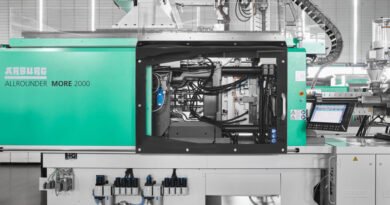Industrial Transformation: Consistent Progress or Leap into the Future?
Giedrė Ramanauskienė
This month the European Commission has presented a new vision of industrial transformation – Industry 5.0. For Lithuania, as well as for many EU countries, such a shift in the political agenda should cause considerable confusion, as the focus in the recent programming of the country’s challenges and investments for the next decade has been on implementing a transformation based on the principles of Industry 4.0.
The confusion is exacerbated by the fact that Finnish researchers also spoke about the vision of Industry 6.0.
To make it easier to grasp the plethora of “transformation” concepts, one should know the essential principles of each. Thus, the Industry 4.0 concept is based on an industrial transformation toward manufacturing efficiencies based on intelligent technologies that communicate with each other (artificial intelligence and machine learning, Internet of Things, big data, cloud computing, augmented reality technologies, automation solutions, etc.). This transformation must, in principle, reduce the dependence of production processes on the human factor and, in some stages, become completely independent. In such an industry of the future, human being is seen in the role of decision maker or controller.
The main impetus for rethinking the Industry 4.0 concept has been the new political priorities of the European Union. The European Green Deal has set goals for the circular economy, sustainability and waste reduction, and the Covid-19 pandemic has forced a rethink of existing work organization methods, industrial resilience and the vulnerability of global value chains. The concept of Industry 5.0 stemmed from the need to systematically integrate social and environmental aspects alongside the goals of technological progress.
In this concept, industry aims to contribute to society’s aspirations for jobs and growth and to ensure sustainable and challenging production. In essence, the essence of the transformation of Industry 5.0 is to enable the technological advancement of industry to create value for society. In such an industry of the future, progress can only be achieved through a combination of human and technological cooperation, while reducing environmental impact through pollution abatement and renewable energy.
In the 5.0-based industry, the focus on personalized manufacturing will continue to grow significantly. Customers will be able to design the desired products according to their exact requirements. This will be especially true, for example, in the clothing, furniture, automotive industries, where products will be increasingly personalized. This trend will particularly affect the pharmaceutical sector. Thanks to various intelligent devices that allow continuous monitoring of a person’s physical parameters, it will be possible to produce personalized medicines to meet the needs of a particular person.
It would seem that it is impossible to transform Lithuanian industry according to the goals of Industry 5.0, while we are still trying (often stuck at every step), to move towards the “bright” horizon of Industry 4.0. But the world is moving much faster than we can read descriptions of concepts. At present, Finnish researchers have already presented the concept of Industry 6.0. The reason for this concept has become the need to design a global shock-resistant industry.
It will be a customer-focused, virtualized industry with strong interconnected plant networks in highly dynamic supply chains and value networks. In such production, all technologies and models will merge, complement each other, and the boundaries between them will blur. And while the Industry 6.0 scenario is still in paper, the world progresses at an unprecedented rate, and it should appear on the political agendas of the most advanced countries in the near future.
And where are we? Lithuania’s political agenda has gradually begun to talk about the need to transform industry on the basis of the principles of Industry 4.0, but at the level of implementation there is little attention to this priority. On the other hand, maybe it is all for good – from the traditional industry, after skipping a few steps, we will be able to jump to Industry 6.0 at once.




